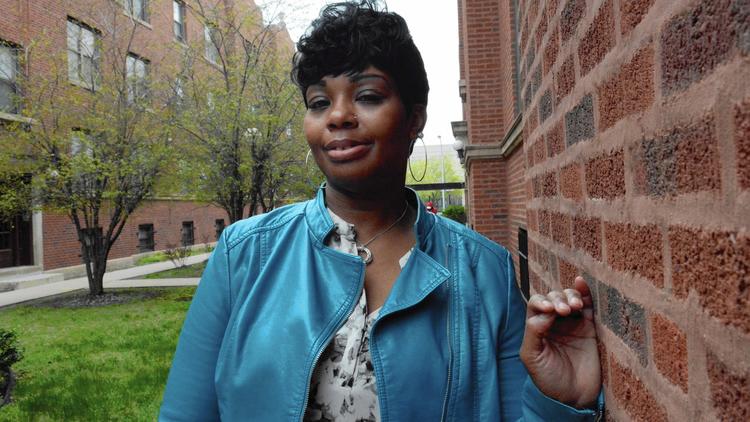http://www.chicagotribune.com/news/media/92327877-132.html
Fast” Fres Oquendo was a well-known name on the world heavyweight boxing stage when he created a nonprofit boxing academy to help get Chicago kids off the streets.
But his plans to partner with the Chicago Park District to open a boxing gym in the Humboldt Park field house, near his childhood stomping grounds, got derailed about five years ago when a background check revealed a drug conviction from nearly 20 years earlier.
State law barred park districts from employing people convicted of drug crimes — a self-defeating barrier, in Oquendo’s opinion, because his goal was to offer kids an alternative to gangs and drugs, from someone who understood their struggles.
That prohibition was lifted at the start of this year as several new state laws went into effect that ease employment restrictions for people with certain criminal records, who can now work in schools and park districts and obtain health care licenses after a certain number of years have passed since they served their time.
The bipartisan efforts behind the laws are meant to reduce the likelihood that people will re-commit crimes by giving them more opportunities to earn a legitimate living.
“When the government makes it hard for ex-offenders to find a job, that is exacerbating the problems people are having reintegrating into society and becoming self-sufficient,” said Hilary Gowins, director of content strategy for the Illinois Policy Institute, a right-leaning advocacy group that supported some of the legislation.
About 30,000 people leave Illinois prisons every year, and nearly half of them return within three years, costing taxpayers an average of $40,000 each time they go back behind bars, Gowins said. Making it easier for ex-offenders to work, such as by removing barriers to obtaining professional licenses, is among the recommendations issued by the Illinois Commission on Criminal Justice Reform created by Republican Gov. Bruce Rauner, who has said he wants to reduce the prison population by 25 percent by 2025.
Employment, particularly when it pays well, has been found to reduce recidivism. A 2008 Urban Institute study found that men who were unemployed two months after release from prison had a 23 percent recidivism rate, compared with 16 percent among those employed and earning less than $7 an hour (the federal minimum wage at the time was $6.55), and 8 percent among ex-offenders earning more than $10 an hour.
Two of the new Illinois laws eliminate general bans that prevent people with drug convictions from working at schools or park districts. Now schools and park districts may hire them if at least seven years have passed since they completed their sentences. They also may now employ people convicted of misdemeanor public indecency or misdemeanor prostitution. People convicted of murder, sexual assault and a number of other felonies are still banned outright from working in schools and parks.
To Oquendo, who lobbied in Springfield for the parks bill, hitting a legal wall as he tried to give back to his community seemed “ridiculous.”
A native of Puerto Rico who moved to Chicago as an infant, Oquendo said he was living in the Lathrop Homes public housing project on the North Side when he fell in briefly with a crowd of “knuckleheads” and started dealing drugs. Though he was already an amateur boxing champion at the time, it didn’t pay. He also wanted to help his mom, a city employee with four kids, cover the bills.
“I tried to take a shortcut out, and I regret it to this day,” he said.
Oquendo, 21 at the time, pleaded guilty to possession of narcotics with intent to deliver in 1994 and was sentenced to boot camp.
After he got out, he recommitted himself to his sport and went pro in 1997.
Now 43, Oquendo has his sights set on finally winning the title of world heavyweight champion this year, after three controversial losses.
He also plans to revive his plans to bring the Fres Oquendo Boxing Academy to the Humboldt Park field house for kids in tough circumstances who need someone who can relate.
Neither the Chicago Park District nor the Chicago Public Schools responded to requests for comment.
Beth Johnson, director of legal programs at Cabrini Green Legal Aid, which advocated for the parks and schools bills and several others, said the changes are “pretty big developments” for Illinoisans who can now use their experiences to help their communities.
Another major change is a bill that lifts a ban preventing people convicted of forcible felonies from obtaining health care licenses, which are required for many positions, including working as a doctor, nurse or athletic trainer.
Forcible felonies include first-degree murder, aggravated battery, robbery and burglary. The law still does not allow health care licenses for sex offenders or people who have been convicted of criminal battery against a patient.
Now people with covered forcible felonies on their records can petition to have a denied health care license issued, or a revoked license reinstated, five years after completion of their sentence or three years after their release from prison. The Illinois Department of Financial and Professional Regulation still determines whether to grant the license, but the new law lists what factors it may take into account, including the seriousness of the offense and prior disciplinary history.
LaTonya Anderson, 40, who lobbied for the bill, said she “felt a huge weight lifted off me” when it passed.
Anderson, a certified nursing assistant, had studied for years to pass the state exams to become a licensed practical nurse, then was denied the necessary license because of a battery conviction from 20 years earlier, crushing her hopes to get off of public assistance.
“This just opens the door for me and my children to do so much better,” Anderson said. Her hourly pay would increase to $24 from $10.50 with the higher position.
Health care was selected in part because it is a large and growing industry with many job openings. At least one employer is supportive of the change.
“We support efforts that let rehabilitated ex-offenders become contributing members of society and always welcome a larger pool of potential Rush employees,” Charles Jolie, spokesman for Rush University Medical Center, said in a statement. “We have strong processes in place that review and screen every job applicant, thus if the IDFPR reviews their case, agrees they are rehabilitated and issues a license, they are free to apply for position at Rush and go through that screening and review.”
The prevalence of occupational licensing across a broad variety of professions has taken fire for imposing barriers to entry. Nearly a quarter of U.S. workers are in jobs that require a government license. And in Illinois, there are at least 118 occupational, professional and business licenses that may or must be denied to applicants with felony records, according to the nonprofit Safer Foundation, which provides employment and other re-entry services to people with criminal records.
One of the new Illinois laws takes aim at a motley assortment of those occupations: barbers, cosmetologists, nail technicians, hair braiders, roofers, funeral directors and embalmers.
Before, people wishing to get licensed for those jobs could be denied by the Department of Financial and Professional Regulation solely for having a criminal record. Now a record can’t be the only reason for denial unless the conviction is directly related to the job — a specific list of offenses includes crimes like murder and kidnapping across the board, and home invasion for a roofing license. The agency also must consider evidence of rehabilitation, such as the applicant’s age at the time of the crime or lack of disciplinary history, when making a decision.
The occupations chosen for the bill are high-growth with entry-level opportunities that can lead to career progression and entrepreneurship, said Sodiqa Williams, vice president of external affairs at the Safer Foundation, which proposed the bill with the Illinois Policy Institute.
Safer plans to propose legislation targeting licensing restrictions in more industries this year, including possibly accounting and real estate, Williams said.
Twitter @alexiaer







